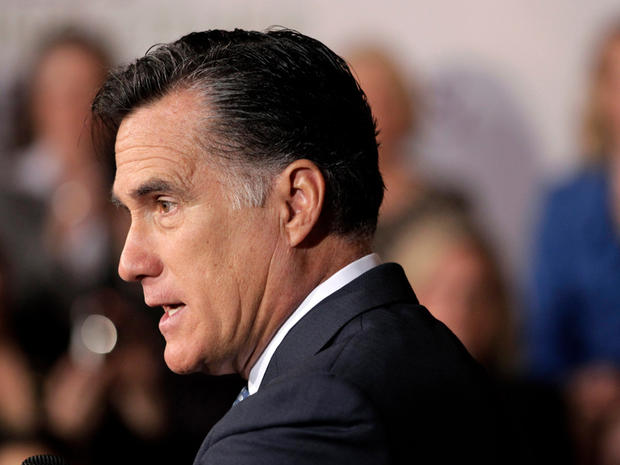The problem with Romney's promises on the debt
News Analysis
(CBS News) Mitt Romney is claiming that, if he is elected, he will start to put out the "prairie fire of debt" sweeping the nation.
But his tax plan, in its current form, would instead feed the flames.
Romney is proposing to cut the top income tax rate from 35 percent to 28 percent and cut other tax rates by 20 percent, among other tax cuts. That would reduce revenue to the federal government and increase the debt and deficit, according to nonpartisan analysts.
Romney says he will offset this lost revenue in part by eliminating deductions and loopholes in the current tax code. Yet he is decidedly mum on exactly which deductions and loopholes he will eliminate. An email to the Romney campaign asking if and when the candidate would fill in the details of his plan was not returned.
Romney has good reason to be vague: Explaining exactly what tax breaks he would eliminate means potentially angering the voters who would be affected. But his decision not to offers details leaves Americans with no choice but to consider the plan as it now stands. According to a March Tax Policy Center analysis, Romney's plan would add $900 billion to the deficit in 2015, when his proposed changes would go into full effect.
Romney claims that, under his leadership, "[w]e will stop borrowing unfathomable sums of money we can't even imagine, from foreign countries we'll never even visit." The Congressional Budget Office is projecting a $1.17 trillion budget deficit for the budget year that ends in September. If the deficit otherwise stays steady, Romney's tax plan in its current form, with its projected $900 billion in lost revenue, would push that to more than $2 trillion. His plan to increase defense spending would push it even higher -- one analysis found Romney's proposals would mean $2.1 trillion in additional military spending over a decade.
It appears, then, that if Romney wants to fulfill his promise to "stop borrowing unfathomable sums of money" while dramatically cutting taxes, he'll have to eliminate more than $2 trillion per year from the federal budget. (Even if the as-yet-unspecified offsets save $500 billion, he'd still have to eliminate more than $1.5 trillion.) The federal government spent $3.6 trillion in fiscal year 2011, according to the Center on Budget and Policy Priorities.
Twenty percent of the 2011 budget, or $718 billion, went to defense spending, a figure that Romney says he wants increased. Romney's proposal, with its reduction in tax receipts, would thus leave less than $1 trillion (or $1.5 trillion with the offsets) for everything else. To get there would mean drastic cuts to Social Security, Medicare, education and infrastructure programs, benefits for veterans, medical research, the FBI and border control, safety net programs that keep millions out of poverty and other federal spending. Romney does say his tax plan will gave the economy a boost, which would mean there is more overall economic output subject to taxation. But even if the boost goes beyond economists most optimistic projections, severe cuts would still be needed.
Romney has proposed immediately cutting non-security discretionary spending by five percent upon taking office, which falls far short of the cuts needed to balance the budget. He has offered broad plans to reform entitlement programs and "streamline" government, but details are vague, and the proposals do not seem to approach the massive spending cuts that would be necessary to eliminate the deficit.
Romney has also endorsed the House GOP budget plan, also known as the Paul Ryan plan. That plan, which proponents say would cut spending by $5.3 trillion over a decade in part by replacing Medicare with a subsidy for seniors to buy health insurance, would also fall short.
Romney's campaign would surely quibble with some of the specifics of this analysis, and when you're considering complex budgetary figures and projections, there is room for discussion. But the overall picture is difficult to dispute: If Romney is going to fully put out the "prairie fire" of debt in conjunction with his current proposal to cut taxes, he'll have to preside over the sorts of cuts to federal spending that would dramatically reshape American life. And if he pushes through those tax cuts without huge offsetting cuts to federal spending, then the "prairie fire" is going to keep on burning.
